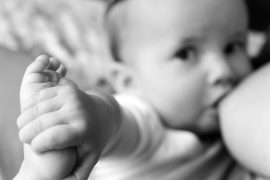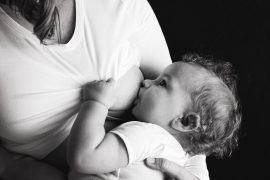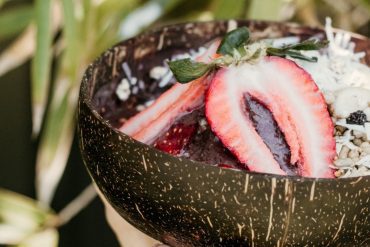Another review, published in 2020 concludes that:
“Breastfeeding until the age of one year is not associated with an increased risk of dental caries, and may even provide protection compared with feeding with formula milk. By contrast, infants who are breastfed beyond the age of 12 months demonstrate an increased risk of caries. However, the results derive from heterogeneous studies that do not always take into account contradictory factors such as eating habits of the mother or infant (feeding during the night, number of meals per day, eating sweet foods, etc.), dental hygiene, or the sociocultural context.”
(Branger et al. 2019)
A newer study has provided more reassurance for families continuing to breastfeed. Devenish et al. looked at Australian pre-schoolers in 2020. They studied breastfeeding patterns at three months, six months, 12 months and 24 months. They also looked at the intake of free sugars in the diet. The children had a full dental examination between the ages of two and three to assess the caries rate. They concluded:
“Breastfeeding practices were not associated with early childhood caries. Given the wide-ranging benefits of breastfeeding, and the low prevalence of sustained breastfeeding in this study and Australia in general, recommendations to limit breastfeeding are unwarranted, and breastfeeding should be promoted in line with global and national recommendations. To reduce the prevalence of early childhood caries, improved efforts are needed to limit foods high in free sugars.”
(Devenish et al. 2020)
It is certainly true that removing other variables in research is a challenge in this area, as is so often the case when looking at infant nutrition and health. We cannot randomly assign some families to breastfeed, others to not. We cannot ask some families to brush teeth and others to not.
The evidence we have does not convince that breastfeeding to 24 months, or beyond, increases risk of dental caries. Even those who are prepared to state that there is a link will comment on the quality of evidence available and call for more research. If someone claims it is an indisputable fact, we need to consider that they may be basing their opinion more on cultural assumptions about prolonged breastfeeding than the science. If we examine human skeletons from the past, where prolonged breastfeeding and night-time breastfeeding is a given, we see very little signs of decay. It is not unlikely that other variables, such as the increase of sugar in the modern diet are more of a concern, ahead of what is the biological norm.
“Breastfeeding in itself does not cause caries. That would defy evolution as cave men did not give their children milk from other animals let alone formula. The issue is the modern western diet whereby we consume very high amounts of sugar. If we restrict sugar intake to a reasonable level (in my opinion and experience that is fruit after meals and very occasional refined sugar products on special occasions), there is no issue with breastfeeding on demand. Offering cows’ milk or formula on demand once baby teeth have erupted is a much greater issue as our teeth are not designed to consume them. In a dental study conducted in Tristan da Cunha, the deterioration of oral health on this remote island community was noted in the middle of the 20th century following a change to a diet rich in fermentable carbohydrates. This confirms the role of sugar in the aetiology of dental caries.”
(Dentist Richa Sharma)
The bottom line is that even if a convincing powerful study appeared tomorrow, that had removed all the variables and was flawless in its execution, and it showed that breastfeeding beyond 24 months increased risk of dental decay, this does not mean that extended breastfeeding would not happen.
Evidence is beyond dispute that sugars in the diet and fizzy drinks increase risk of tooth decay, and yet adults and children continue to consume these things, because they are making these choices for a multitude of reasons – pleasure, social acceptance, cultural acceptance. The idea that breastfeeding can be ‘switched off’ and stopped because a professional tells you it should be, puts breastfeeding even lower down the list of what is culturally acceptable than fizzy drinks and juice. If a parent says their four-year-old drinks juice or eats biscuits, the chances are the dentist will accept that and explain what else can be done to reduce risk. At most, they may talk about cutting down or offer a sympathetic approach to changing habits. I have yet to hear of a dentist that says, “Why is your child eating biscuits? There’s no value in that.” Does any dentist say, “You need to stop giving your child snacks”?
It goes without saying that it is good practice for a health professional to listen to the families they support, and provide information that supports optimum health of a whole child, not just the bits their training focused on.
What can parents do to reduce risk of dental caries? The list may include drinking a water supply that contains fluoride, no smoking in pregnancy, cleaning teeth properly once teeth appear, regular dental check-ups, minimising exposure to sugar and understanding that some apparently healthy foods (e.g. dried fruit) may increase risk. Regular snacking in the day could also increase risk. Young children should ideally not be offered sugary drinks or juices as normal drinks.
Families can be supported to make all these changes without changing breastfeeding patterns. The danger of having conversations which focus on the breastfeeding patterns, and criticise breastfeeding choices, is that parents are more likely to go underground. They may continue to breastfeed without regular dental visits and be less inclined to trust other messages being given. This is true of so many conversations with health professionals: when breastfeeding is devalued or dismissed, an important relationship is damaged and the future health of families may be at risk.
We are more than our teeth (sorry, dentists). We are social, loving, connected humans who breastfeed for a thousand reasons. Even if I come back to revise this article months from now, because a new study has demonstrated beyond a shadow of a doubt continuing to breastfeed is a risk factor for ECC, this article will end with an assertion that breastfeeding continues to aid sleep, calm, provide nutrition and immunological protection and reduces the risk of malocclusion. Only a society that values biscuits over breastfeeding would tell families to stop natural-term feeding.
References:
Branger, B., Camelot, F., Droz, D., Houbiers, B. et al. (2019) ‘Breastfeeding and early childhood caries. Review of the literature, recommendations, and prevention.’ Archives de Pédiatrie 26, 8, 497-503.
Devenish, G., Mukhtar, A., Begley, A., Spencer, A.J. et al. (2020) ‘Early childhood feeding practices and dental caries among Australian preschoolers.’ The American Journal of Clinical Nutrition 111, 4, 821-828. doi: 10.1093/ajcn/nqaa012 PMID: 32047898
Marković, Evgenija & Marković, Dejan & Vukovic, Rade & Peric, Tamara & Kilibarda, Biljana & Vukovic, Ana. (2019). Breastfeeding: The perspective of paediatric dentist. Zdravstvena zastita. 48. 35-41. 10.5937/ZZ1904035M.
Moynihan, P., Tanner, L.M., Holmes, R.D., Hillier-Brown, F. et al. (2019) ‘Systematic Review of Evidence Pertaining to Factors That Modify Risk of Early Childhood Caries.’ JDR Clinical & Translational Research 4, 3, 202-216. doi: 10.1177/2380084418824262 PMID: 30931717
Peres KG, Cascaes AM, Nascimento GG, Victora CG. Effect of breastfeeding on malocclusions: a systematic review and meta-analysis. Acta Paediatr. 2015 Dec;104(467):54-61. doi: 10.1111/apa.13103. PMID: 26140303.
Public Health England (2019) Guidance: Breastfeeding and Dental Health. UK: Public Health England. Accessed on11/05/21 at https://www.gov.uk/government/publications/breastfeeding-and-dental-health/breastfeeding-and-dental-health
Tham, R., Bowatte, G., Dharmage, S.C., Tan, D.J. et al. (2015) ‘Breastfeeding and the risk of dental caries: a systematic review and meta-analysis.’ Acta Paediatrica 104, S467, 62-84. doi: https://doi.org/10.1111/apa.13118
Originally published here.
After a career as a Deputy Headteacher in central London, Emma initially trained with UK charity Association of Breastfeeding Mothers, qualifying as a breastfeeding counsellor with them in 2007. She qualified as a Board Certified Lactation Consultant (IBCLC) in 2011. She recertified in 2016 and continues to offer voluntary support at groups across West Haringey and volunteers on the National Breastfeeding Helpline and ABM national helpline alongside her private lactation consultant work. You can find her on Instagram and on Twitter as @makesmilk. Her book, “You’ve Got It In You: a positive guide to breastfeeding” can be found on Amazon and from other retailers.










